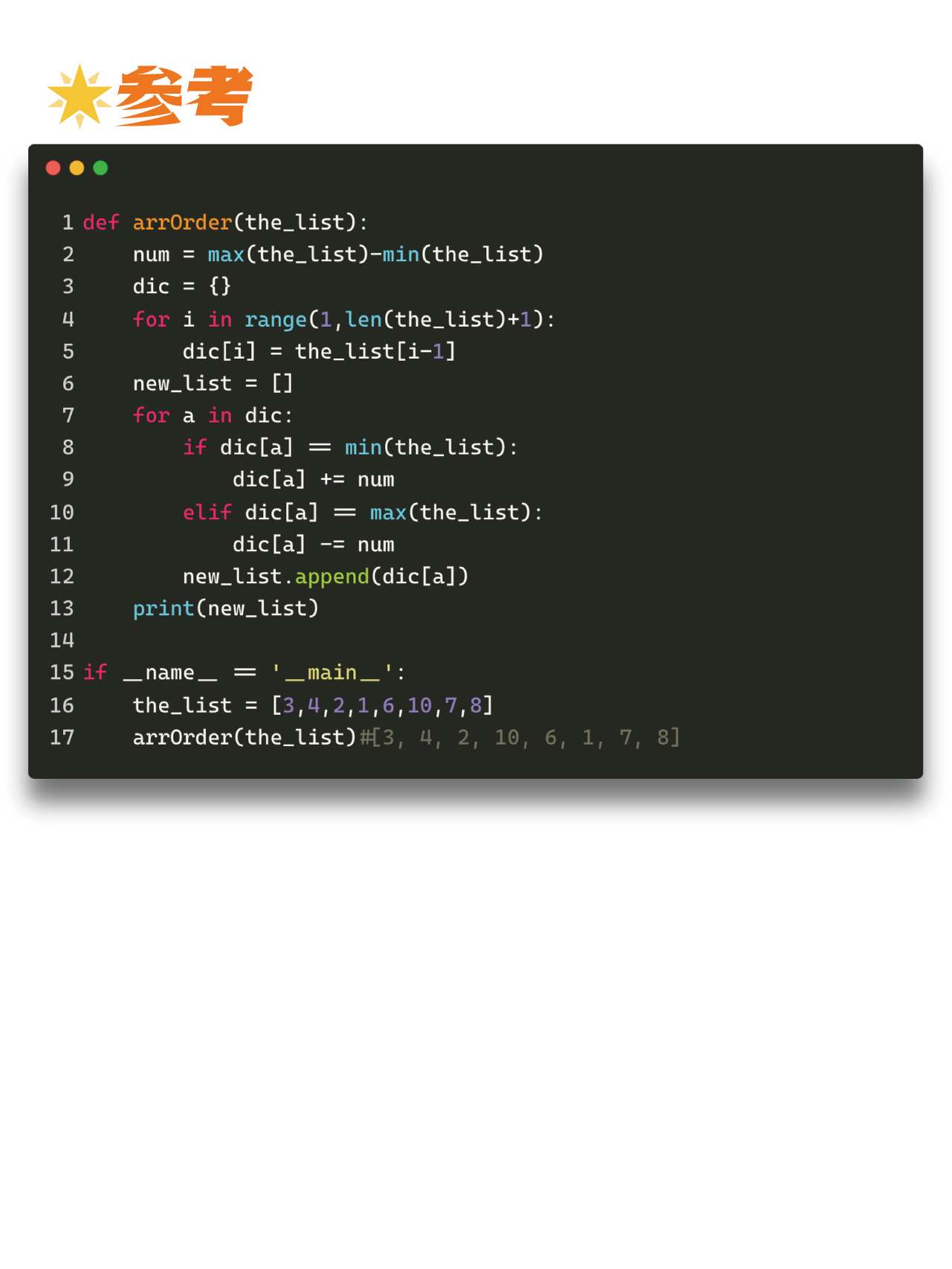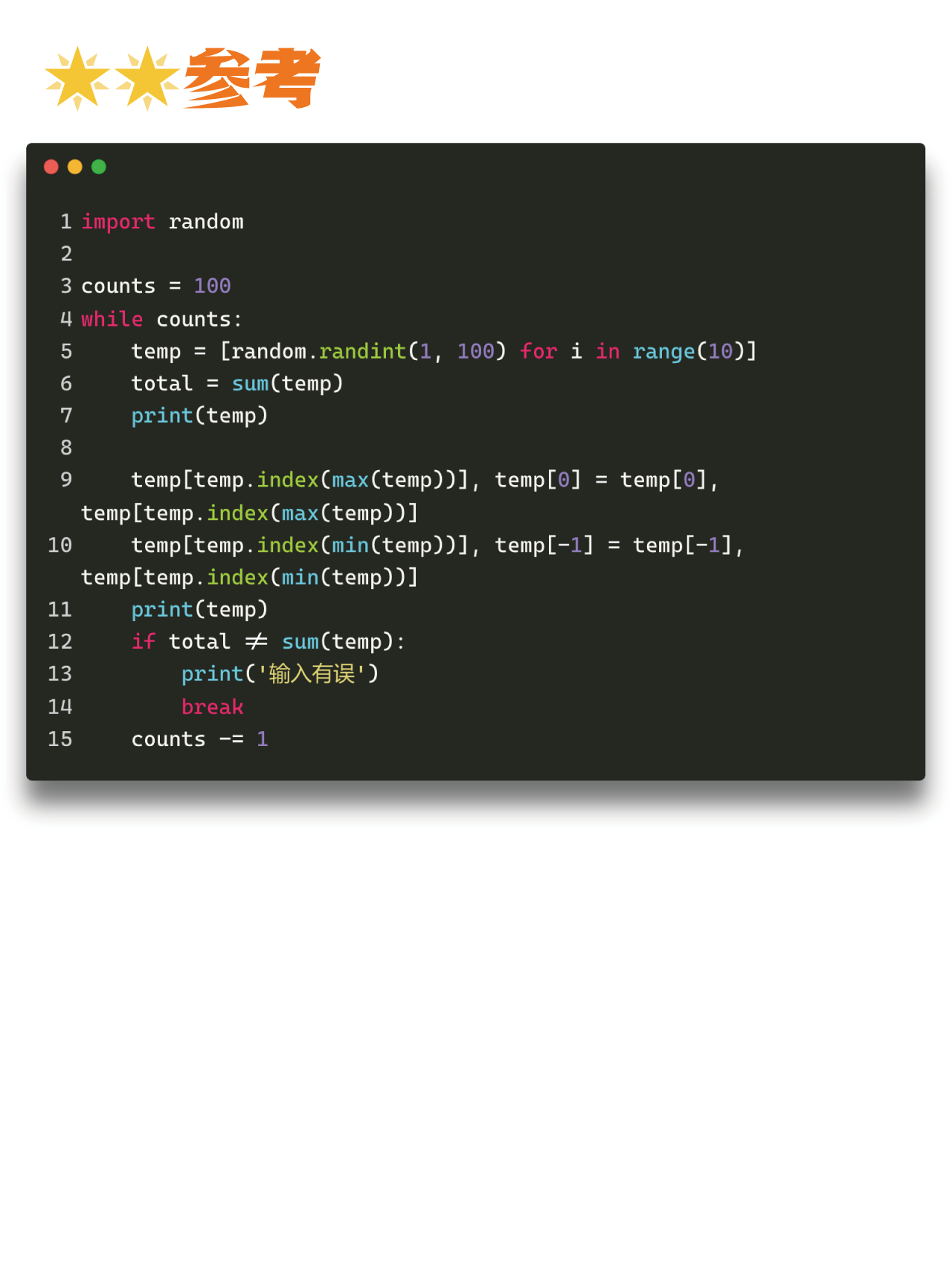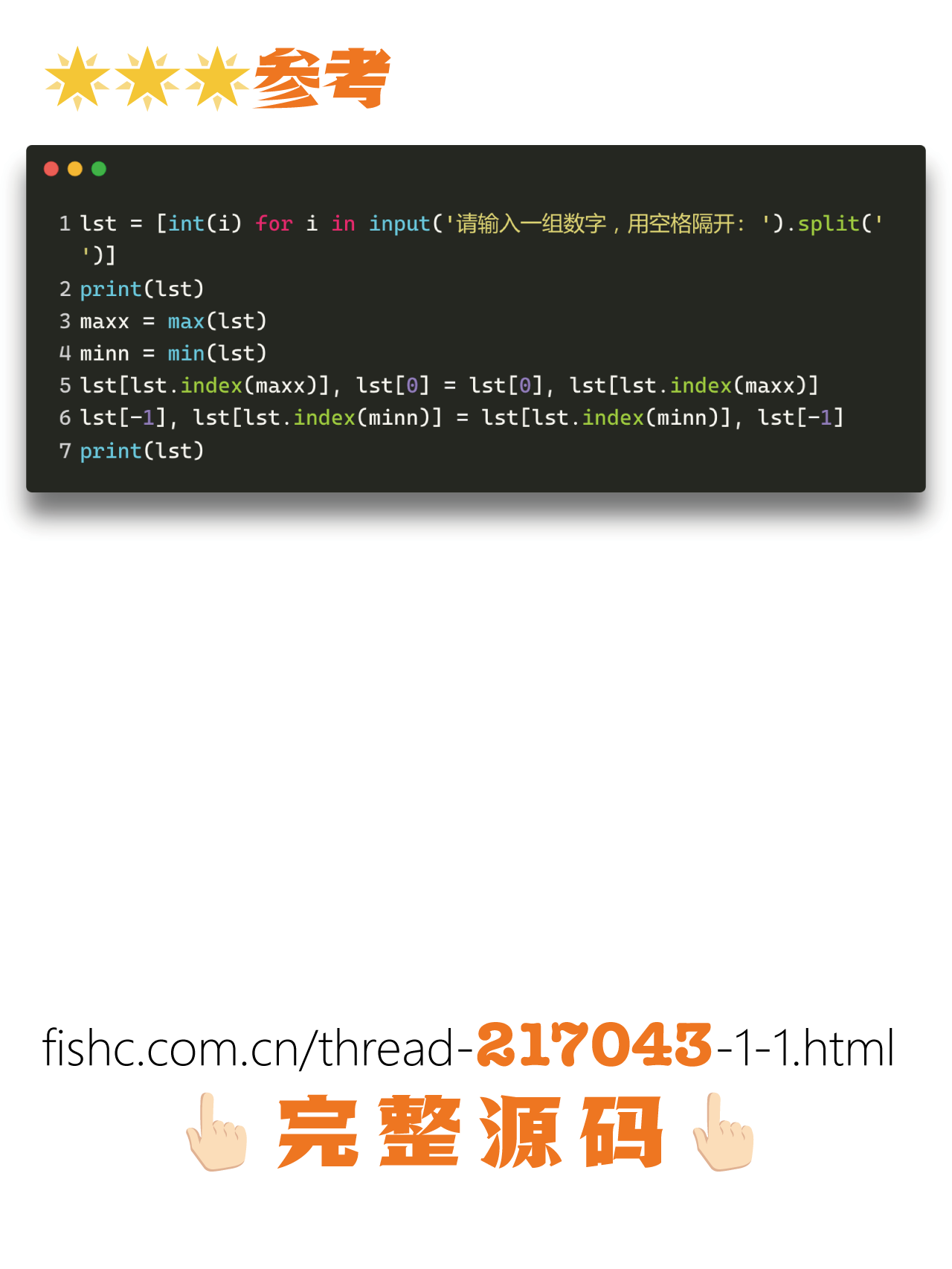|
|
马上注册,结交更多好友,享用更多功能^_^
您需要 登录 才可以下载或查看,没有账号?立即注册
x
本帖最后由 不二如是 于 2022-8-29 17:49 编辑




一星答案:
- def arrOrder(the_list):
- num = max(the_list)-min(the_list)
- dic = {}
- for i in range(1,len(the_list)+1):
- dic[i] = the_list[i-1]
- new_list = []
- for a in dic:
- if dic[a] == min(the_list):
- dic[a] += num
- elif dic[a] == max(the_list):
- dic[a] -= num
- new_list.append(dic[a])
- print(new_list)
- if __name__ == '__main__':
- the_list = [3,4,2,1,6,10,7,8]
- arrOrder(the_list)#[3, 4, 2, 10, 6, 1, 7, 8]
二星答案:
- import random
- counts = 100
- while counts:
- temp = [random.randint(1, 100) for i in range(10)]
- total = sum(temp)
- print(temp)
-
- temp[temp.index(max(temp))], temp[0] = temp[0], temp[temp.index(max(temp))]
- temp[temp.index(min(temp))], temp[-1] = temp[-1], temp[temp.index(min(temp))]
- print(temp)
- if total != sum(temp):
- print('There is something wrong!')
- break
- counts -= 1
三星答案:
基础语法:
算法讲解:
|
评分
-
查看全部评分
|
 ( 粤ICP备18085999号-1 | 粤公网安备 44051102000585号)
( 粤ICP备18085999号-1 | 粤公网安备 44051102000585号)